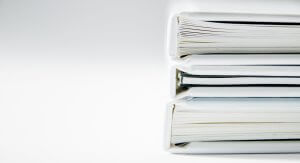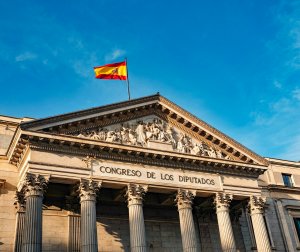- Arbitration
- International
- Financial services

Longer Reads
Taking evidence in international arbitration – IBA rules versus the Italian and English legal systems
This brief guide provides an overview of the International Bar Association rules on the taking of evidence in international arbitration (“IBA Rules”) in comparison with the approach of the Italian and English legal systems.
6 minute read
Published 3 December 2020
Key information
The choice of arbitration as a means of alternative dispute resolution allows the parties to tailor many aspects of the process to the needs of a specific dispute. This brief guide has been prepared for Italian lawyers and provides an overview of the International Bar Association rules on the taking of evidence in international arbitration (“IBA Rules”) in comparison with the approach of the Italian and English legal systems. International arbitration brings together parties and counsel from different cultural and legal backgrounds. The rules developed by various arbitral institutions usually reflect procedures in use in different legal system.
The IBA Rules were drafted by a working party appointed by the Committee on Arbitration and Alternative Dispute Resolution of the IBA and published in 1999. In May 2010, as a result of a two-year review process, the IBA Council approved the revised version of the Rules that are in force today. Parties and arbitral tribunals may adopt the IBA Rules in its entirety or only in part – at the time of drafting the arbitration clause in a contract or once an arbitration commences – or they may use them as guidelines. Parties are free to adapt them to the particular circumstances of each case.
As explained in the Commentary on the revised text of the 2010 IBA Rules, the rules are not, of course, intended to provide a complete mechanism for the conduct of an international arbitration. Parties have still to opt for a set of institutional or ad hoc rules, such as those of the ICC, AAA, LCIA, UNCITRAL or ICSID, or design their own rules, to provide the overall procedural framework for their arbitration.
General principles about evidence
The preamble notes of the IBA Rules explain that their overriding principle is that the taking of evidence shall be conducted on the principle that each party shall be “entitled to know, reasonably in advance of any Evidentiary Hearing or any fact or merits determination, the evidence on which the other Parties rely”. Art. 2.1 of the IBA rules provides for a mandatory consultation between the arbitral tribunal and the parties “at the earliest appropriate time in the proceedings”. The arbitral tribunal has a central role in the identification of the evidence. As a result of the consultation it can make decisions on the scope, timing and manner of taking evidence and the tribunal is encouraged to identify to the parties any issues that might be relevant to the case and that may be material to its outcome and/or for which preliminary determination may be appropriate (art 2.2 and 2.3 of IBA Rules).
In Italian civil proceedings, the parties in dispute are given the initiative to gather evidence relating to the facts on which the judge will have to provide a judgment. It is the responsibility of each of the disputing parties to indicate the evidence in support of the facts upon which they rely. This implies that the Court must rely only on the evidence offered by the parties in support of the factual allegations they have made in their pleadings, apart from some exceptions specified by law (art. 115 Italian Code of Civil Procedure).
In English civil proceedings, the parties are required to assist the court to further “the overriding objective” of enabling it to deal with cases justly and at proportionate cost, as stated in part 1 of the Civil Procedure Rule (“CPR”). The power of the Court to control evidence is provided in part 32 CPR, which states that the Court may control the evidence in consultation with the parties in order to decide the issues on which it requires evidence, the nature of the evidence which it requires to decide those issues and the way in which the evidence is to be placed before the court. The Court may use its power under this rule to exclude evidence that would otherwise be admissible and to limit cross-examination of witnesses.
Disclosure of Documents
The IBA Rules appear to strike a balance between the differing approaches to document production in civil and common law jurisdictions. Document production takes place once the arbitration proceedings have commenced, and each party is required to submit to the arbitral tribunal and to the other parties all documents on which it relies, within the time frame ordered by the tribunal (art. 3 IBA rules). The tribunal can order that further documents be disclosed if it is satisfied that these are relevant to issues raised in documents, witness statements or experts’ reports provided by the parties during the proceeding. Each party can serve on the other a request to produce documents (art. 3.2 IBA Rules). The request has to reasonably identify the document or category of documents and show how the documents requested are relevant to the case and material to its outcome. If the recipient party objects to the request it must provide its objections in writing within a timeframe ordered by the tribunal.
In the Italian legal system, there are no general obligations of disclosure of documents and the parties can choose which documents to present before the Court. However, if a party is aware that the other party is in possession of one or more specific documents, it may ask the court to order their production, provided that the documents are specifically identified by the applicant party and that their disclosure is necessary for the judge to decide the case (art. 210 Italian Code of Civil Procedure).
In the English civil process, there is extensive disclosure of documents (part 31 CPR). The purpose of this disclosure is to allow the parties to know what are the facts and issues that are in dispute and at the same time to enable them to evaluate the strength of the claim or the defence against them. Although the parties can agree limitations on disclosure of documents (or the court can order that) each party is broadly required to disclose to the other the documents they hold that are relevant to the case. Importantly, this includes an obligation on the parties to disclose documents that are adverse to their own case.
Fact Witnesses
The IBA Rules again seem to draw from both civil and common law tradition. Art. 4.1. of the IBA Rules require that each party identifies the witnesses on whose testimony it intends to rely and the subject matter of that testimony. Relevantly, art. 4.1 states that any person may give evidence as a witness, including a party or a party’s officer, employee, or other representative. The IBA Rules do not require that the statement be made under oath. Pursuant to art. 8 of IBA Rules, each party has to inform the arbitral tribunal and the other parties of the witnesses they intend should give evidence. The arbitral tribunal may limit or exclude any question to, answer by, or appearance of, a witness, if it considers such question, answer or appearance to be irrelevant, immaterial, unreasonably burdensome, duplicative or otherwise covered by a reason for objection in article 9.2.
In Italian civil proceeding the use of written witness statements is very limited and testimonies are instead heard orally before the Court. If a party requests a witness examination, it must do so by specifically identifying the witness and the specific circumstances to which it wishes the witness to testify. The judge will admit questions that are relevant in order to decide the case. Witnesses are questioned by the judge, although the parties suggest to the judge the questions to be asked. There are limitations on which witnesses can give evidence. Individuals that have a personal interest that would allow them to be a party in the proceedings cannot testify. Also, witness evidence is excluded for contracts whose value exceeds a certain threshold, although the Judge retains a discretionary power to admit the testimony taking into account the specific circumstances of the case. Furthermore, witness evidence is excluded for verbal agreements in addition to, or contrary to, the content of a written contract, when they are entered into before or simultaneously its formation, and for contracts that can be proved only by written evidence. These limits are not absolute and the Italian Civil Code contains exceptions under which the testimony becomes admissible, an example is when a party has lost the document evidence without fault.
In English civil litigation procedure, the parties exchange witness statements before the trial. These are written statements signed by the witness which contains the evidence on which the party wishes to rely at trial. The witness statement must contain a statement of truth signed by the witness. During the trial, the same witnesses will be cross-examined by the other party’s lawyer. To be admissible, the witness statement needs to be relevant to facts of the case. Witnesses testify about facts of which they are personally aware and generally are not required to express opinions. Parties can be witnesses in their own lawsuit.
Expert Witnesses
Under art.5 of the IBA Rules parties can rely on expert witnesses appointed by them. The opposing party can, within a time limit ordered by the arbitral tribunal, submit a revised or additional expert report. Pursuant to art.6 of the IBA rules, the tribunal, after consulting with the parties, may also appoint one or more independent tribunal appointed experts to report to it on specific issues it designates. The parties are given the opportunity to be involved in the information-gathering processes by the tribunal appointed expert and are given the opportunity to respond to any report by that expert.
Expert witnesses in Italian proceedings are considered auxiliary officers of the Court with the task of providing the technical support that the Court might need to decide the case. They are chosen from a special list kept at each Court. Before undertaking the task, the expert witness takes an oath to accurately and faithfully fulfil the functions entrusted to the expert for the sole purpose of assisting the court in establishing the truth. The Court outlines the questions which the Court requires the expert to answer in the expert report. The parties may appoint a technical expert that may accompany the court-appointed expert during the expert’s investigations and the parties may file their own reports.
In the English civil procedure, if the Court decides that a matter require the input of an expert, the Court may allow the parties to instruct their own expert in larger or more complex cases, otherwise the Court can order the parties to instruct a single joint expert who is appointed and instructed jointly by the parties involved in the dispute. Where the parties have appointed their own expert, the experts will produce a report covering the questions that have been agreed between the parties or by the Court. The experts then meet to produce a joint statement on the areas that are agreed, and they identify the areas that are not agreed. The reports are then provided to the Court for the purposes of the trial. Each expert will give oral evidence in the witness box and be cross examined by the other party and also be asked questions by the judge.
Related content
Longer Reads
Taking evidence in international arbitration – IBA rules versus the Italian and English legal systems
This brief guide provides an overview of the International Bar Association rules on the taking of evidence in international arbitration (“IBA Rules”) in comparison with the approach of the Italian and English legal systems.
Published 3 December 2020
Associated sectors / services
The choice of arbitration as a means of alternative dispute resolution allows the parties to tailor many aspects of the process to the needs of a specific dispute. This brief guide has been prepared for Italian lawyers and provides an overview of the International Bar Association rules on the taking of evidence in international arbitration (“IBA Rules”) in comparison with the approach of the Italian and English legal systems. International arbitration brings together parties and counsel from different cultural and legal backgrounds. The rules developed by various arbitral institutions usually reflect procedures in use in different legal system.
The IBA Rules were drafted by a working party appointed by the Committee on Arbitration and Alternative Dispute Resolution of the IBA and published in 1999. In May 2010, as a result of a two-year review process, the IBA Council approved the revised version of the Rules that are in force today. Parties and arbitral tribunals may adopt the IBA Rules in its entirety or only in part – at the time of drafting the arbitration clause in a contract or once an arbitration commences – or they may use them as guidelines. Parties are free to adapt them to the particular circumstances of each case.
As explained in the Commentary on the revised text of the 2010 IBA Rules, the rules are not, of course, intended to provide a complete mechanism for the conduct of an international arbitration. Parties have still to opt for a set of institutional or ad hoc rules, such as those of the ICC, AAA, LCIA, UNCITRAL or ICSID, or design their own rules, to provide the overall procedural framework for their arbitration.
General principles about evidence
The preamble notes of the IBA Rules explain that their overriding principle is that the taking of evidence shall be conducted on the principle that each party shall be “entitled to know, reasonably in advance of any Evidentiary Hearing or any fact or merits determination, the evidence on which the other Parties rely”. Art. 2.1 of the IBA rules provides for a mandatory consultation between the arbitral tribunal and the parties “at the earliest appropriate time in the proceedings”. The arbitral tribunal has a central role in the identification of the evidence. As a result of the consultation it can make decisions on the scope, timing and manner of taking evidence and the tribunal is encouraged to identify to the parties any issues that might be relevant to the case and that may be material to its outcome and/or for which preliminary determination may be appropriate (art 2.2 and 2.3 of IBA Rules).
In Italian civil proceedings, the parties in dispute are given the initiative to gather evidence relating to the facts on which the judge will have to provide a judgment. It is the responsibility of each of the disputing parties to indicate the evidence in support of the facts upon which they rely. This implies that the Court must rely only on the evidence offered by the parties in support of the factual allegations they have made in their pleadings, apart from some exceptions specified by law (art. 115 Italian Code of Civil Procedure).
In English civil proceedings, the parties are required to assist the court to further “the overriding objective” of enabling it to deal with cases justly and at proportionate cost, as stated in part 1 of the Civil Procedure Rule (“CPR”). The power of the Court to control evidence is provided in part 32 CPR, which states that the Court may control the evidence in consultation with the parties in order to decide the issues on which it requires evidence, the nature of the evidence which it requires to decide those issues and the way in which the evidence is to be placed before the court. The Court may use its power under this rule to exclude evidence that would otherwise be admissible and to limit cross-examination of witnesses.
Disclosure of Documents
The IBA Rules appear to strike a balance between the differing approaches to document production in civil and common law jurisdictions. Document production takes place once the arbitration proceedings have commenced, and each party is required to submit to the arbitral tribunal and to the other parties all documents on which it relies, within the time frame ordered by the tribunal (art. 3 IBA rules). The tribunal can order that further documents be disclosed if it is satisfied that these are relevant to issues raised in documents, witness statements or experts’ reports provided by the parties during the proceeding. Each party can serve on the other a request to produce documents (art. 3.2 IBA Rules). The request has to reasonably identify the document or category of documents and show how the documents requested are relevant to the case and material to its outcome. If the recipient party objects to the request it must provide its objections in writing within a timeframe ordered by the tribunal.
In the Italian legal system, there are no general obligations of disclosure of documents and the parties can choose which documents to present before the Court. However, if a party is aware that the other party is in possession of one or more specific documents, it may ask the court to order their production, provided that the documents are specifically identified by the applicant party and that their disclosure is necessary for the judge to decide the case (art. 210 Italian Code of Civil Procedure).
In the English civil process, there is extensive disclosure of documents (part 31 CPR). The purpose of this disclosure is to allow the parties to know what are the facts and issues that are in dispute and at the same time to enable them to evaluate the strength of the claim or the defence against them. Although the parties can agree limitations on disclosure of documents (or the court can order that) each party is broadly required to disclose to the other the documents they hold that are relevant to the case. Importantly, this includes an obligation on the parties to disclose documents that are adverse to their own case.
Fact Witnesses
The IBA Rules again seem to draw from both civil and common law tradition. Art. 4.1. of the IBA Rules require that each party identifies the witnesses on whose testimony it intends to rely and the subject matter of that testimony. Relevantly, art. 4.1 states that any person may give evidence as a witness, including a party or a party’s officer, employee, or other representative. The IBA Rules do not require that the statement be made under oath. Pursuant to art. 8 of IBA Rules, each party has to inform the arbitral tribunal and the other parties of the witnesses they intend should give evidence. The arbitral tribunal may limit or exclude any question to, answer by, or appearance of, a witness, if it considers such question, answer or appearance to be irrelevant, immaterial, unreasonably burdensome, duplicative or otherwise covered by a reason for objection in article 9.2.
In Italian civil proceeding the use of written witness statements is very limited and testimonies are instead heard orally before the Court. If a party requests a witness examination, it must do so by specifically identifying the witness and the specific circumstances to which it wishes the witness to testify. The judge will admit questions that are relevant in order to decide the case. Witnesses are questioned by the judge, although the parties suggest to the judge the questions to be asked. There are limitations on which witnesses can give evidence. Individuals that have a personal interest that would allow them to be a party in the proceedings cannot testify. Also, witness evidence is excluded for contracts whose value exceeds a certain threshold, although the Judge retains a discretionary power to admit the testimony taking into account the specific circumstances of the case. Furthermore, witness evidence is excluded for verbal agreements in addition to, or contrary to, the content of a written contract, when they are entered into before or simultaneously its formation, and for contracts that can be proved only by written evidence. These limits are not absolute and the Italian Civil Code contains exceptions under which the testimony becomes admissible, an example is when a party has lost the document evidence without fault.
In English civil litigation procedure, the parties exchange witness statements before the trial. These are written statements signed by the witness which contains the evidence on which the party wishes to rely at trial. The witness statement must contain a statement of truth signed by the witness. During the trial, the same witnesses will be cross-examined by the other party’s lawyer. To be admissible, the witness statement needs to be relevant to facts of the case. Witnesses testify about facts of which they are personally aware and generally are not required to express opinions. Parties can be witnesses in their own lawsuit.
Expert Witnesses
Under art.5 of the IBA Rules parties can rely on expert witnesses appointed by them. The opposing party can, within a time limit ordered by the arbitral tribunal, submit a revised or additional expert report. Pursuant to art.6 of the IBA rules, the tribunal, after consulting with the parties, may also appoint one or more independent tribunal appointed experts to report to it on specific issues it designates. The parties are given the opportunity to be involved in the information-gathering processes by the tribunal appointed expert and are given the opportunity to respond to any report by that expert.
Expert witnesses in Italian proceedings are considered auxiliary officers of the Court with the task of providing the technical support that the Court might need to decide the case. They are chosen from a special list kept at each Court. Before undertaking the task, the expert witness takes an oath to accurately and faithfully fulfil the functions entrusted to the expert for the sole purpose of assisting the court in establishing the truth. The Court outlines the questions which the Court requires the expert to answer in the expert report. The parties may appoint a technical expert that may accompany the court-appointed expert during the expert’s investigations and the parties may file their own reports.
In the English civil procedure, if the Court decides that a matter require the input of an expert, the Court may allow the parties to instruct their own expert in larger or more complex cases, otherwise the Court can order the parties to instruct a single joint expert who is appointed and instructed jointly by the parties involved in the dispute. Where the parties have appointed their own expert, the experts will produce a report covering the questions that have been agreed between the parties or by the Court. The experts then meet to produce a joint statement on the areas that are agreed, and they identify the areas that are not agreed. The reports are then provided to the Court for the purposes of the trial. Each expert will give oral evidence in the witness box and be cross examined by the other party and also be asked questions by the judge.
Associated sectors / services
- Arbitration
- International
- Financial services
Need some more information? Make an enquiry below.
Enjoy reading our articles? why not subscribe to notifications so you’ll never miss one?
Subscribe to our articlesMessage us on WhatsApp (calling not available)
Please note that Collyer Bristow provides this service during office hours for general information and enquiries only and that no legal or other professional advice will be provided over the WhatsApp platform. Please also note that if you choose to use this platform your personal data is likely to be processed outside the UK and EEA, including in the US. Appropriate legal or other professional opinion should be taken before taking or omitting to take any action in respect of any specific problem. Collyer Bristow LLP accepts no liability for any loss or damage which may arise from reliance on information provided. All information will be deleted immediately upon completion of a conversation.
Close










































